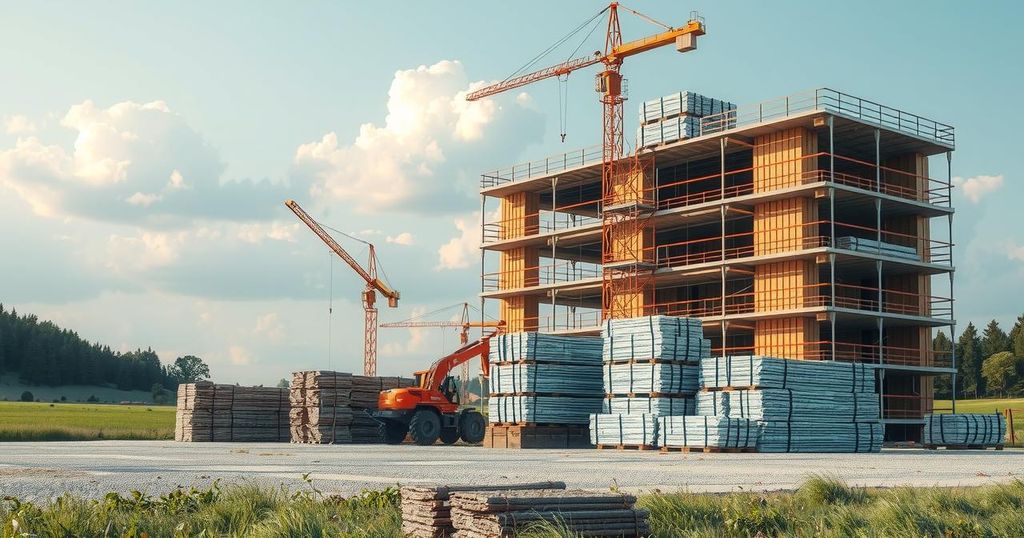Tanzania’s construction materials industry has seen a doubling in cement production over the past decade; however, consumers face higher prices for materials like cement and steel due to persistent taxation and operational challenges. Efforts by the government aim to improve price transparency, supply chains, and reduce import dependency, but challenges remain significant.
A recent survey by The Citizen highlights a significant increase in cement prices in Tanzania, which rose from Sh12,000 per bag three years ago to current prices ranging from Sh14,500 to Sh20,000 in certain areas. Despite the construction materials industry doubling cement production from 4.4 million tonnes to 9.1 million tonnes over the last decade, consumers continue to face high prices, affecting rental costs across the country.
Stakeholders attribute these high prices to persistent taxation and operational challenges, which hinder manufacturers’ ability to reduce costs despite growth in production. The Tanzanian government acknowledges the complex dynamics affecting construction material prices, with ongoing initiatives aimed at translating industrial growth into consumer benefits.
In the steel bar sector, annual domestic demand reaches over 605,369.6 tonnes, with local production exceeding this demand due to a surplus exported to neighboring countries. However, steel prices remain elevated, with a 12-millimeter bar costing between Sh22,000 and Sh25,000, although prices are lower than previous years.
Although consumers have noted a slight dip in cement prices, this decrease does not reflect the rise in manufacturing. Mr. Neepeace Wambuya from the Industry and Trade Ministry cited various internal and external factors, such as global economic trends and distribution inefficiencies, as contributing to the prevailing high prices.
Wambuya remarked, “The demand for construction materials remains high due to rapid growth in the sector, which creates supply constraints. However, this demand is also driving increased investment in the industry, which should, over time, improve efficiency and distribution.” The government is also invested in improving supply chains and reducing reliance on imported materials by working on local projects like the Liganga iron ore and Mchuchuma coal ventures.
Tanzania’s authorities continue to implement initiatives aimed at reducing barriers to business, such as the Blueprint Initiative. In addition, the review of the industrial policy is close to completion to align with global standards. Industry experts highlight that outdated technology and taxation are key factors in maintaining high costs.
Joseph Magida, managing director of Vijay Contractors, noted that tax relief could alleviate pressures on construction material prices, stating, “The government needs to consider interventions; otherwise, many people will be unable to afford homes. With Sh20 million, you can only build a small house at current prices.”
Concerns over operational costs persist in manufacturing, leading to high prices despite production increases. Alex Silayo from Joint Consult Limited emphasized the need to explore alternative materials to reduce dependence on costly imports.
Ms. Adeline Tarimo, a Goba resident, shared that escalating construction costs are deterring young people from pursuing home construction, stating, “I started building a three-bedroom house in 2020, but it’s been tough. Steel prices have gone up significantly, especially with the rise in the dollar exchange rate.” Furthermore, she highlighted how increased building costs are driving rental prices up as landlords strive for quicker returns on investment, concluding that despite numerous factories, prices remain high and require further action for reduction.
In summary, Tanzania faces a paradox in its construction materials sector, where increased production has not translated into reduced prices for consumers. High taxation, operational challenges, and dependencies on imported materials are maintaining elevated costs, affecting the housing market and rental prices. The government is implementing measures to improve the industry, but consumer relief remains a significant concern.
Original Source: www.thecitizen.co.tz






